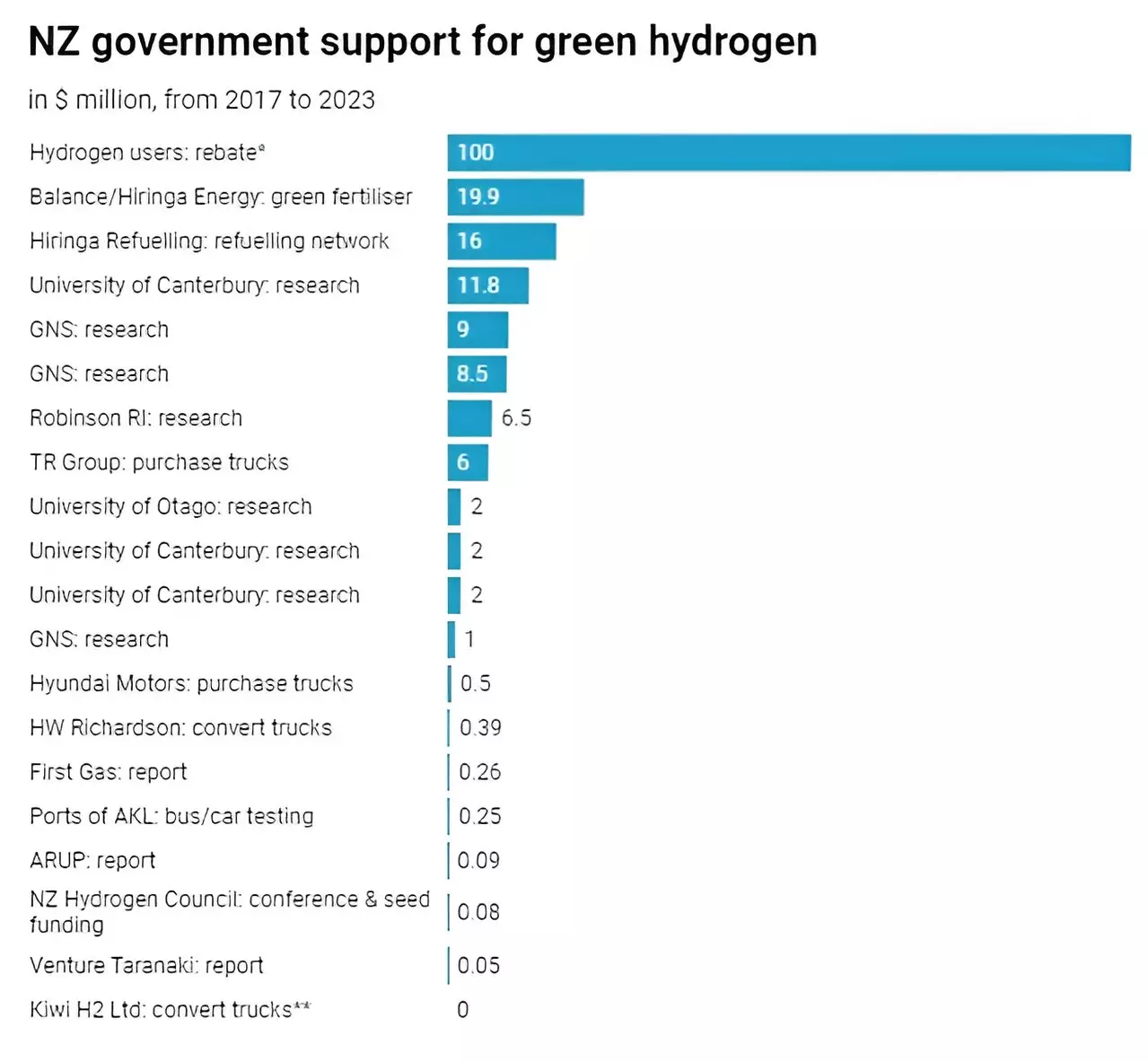The failure of a recent deal to deliver hydrogen-powered trucks to New Zealand, coupled with the removal of a NZ$100 million government rebate scheme for green hydrogen users in the 2024 budget, signal a rocky road ahead for the country’s energy transition plans. Despite significant investments in the purchase of heavy freight hydrogen trucks and the establishment of a hydrogen refueling network, the sudden withdrawal of US company Hyzon has cast doubt on the viability of green hydrogen as a mainstream energy source in New Zealand.
Optimistic Narrative versus Critical Voices
While the government’s support for green hydrogen has been substantial, with funding amounting to $186.3 million from 2017 to 2023, there has been a lack of critical voices in the debate surrounding the technology. Proponents argue that green hydrogen is crucial for decarbonizing sectors that are hard to electrify directly, such as heavy road transport, shipping, and fertilizer production. However, there is considerable debate about the suitability of hydrogen for these applications and whether it is the most effective choice for achieving emissions reductions.
Despite the government’s positive outlook on green hydrogen, a content analysis of key reports revealed a pervasive optimism that did not fully acknowledge the challenges and weaknesses associated with the technology. While “opportunities” and “challenges” were frequently mentioned, references to “weaknesses” and “threats” were notably absent. This optimistic tone extended to media coverage, with only a small percentage of articles offering critical analysis on the efficacy of green hydrogen.
Experts have raised serious concerns about the efficiency and cost-effectiveness of green hydrogen compared to alternatives such as battery electric vehicles. Research has shown that advancements in battery technology, including fast charging and battery-swap systems, may render hydrogen fuel cells unnecessary in many transport applications. This shift towards electric vehicles has been observed in various industries, with some companies opting for cheaper all-electric solutions over hydrogen-powered alternatives.
Given the criticisms and evolving landscape surrounding green hydrogen, it is imperative for government policy to be grounded in independent advice and a nuanced understanding of the technology’s limitations. A more balanced narrative that considers both the potential and challenges of green hydrogen will help prioritize resource allocation towards applications that offer the greatest decarbonization benefits. This could involve transitioning key industries in New Zealand towards green hydrogen production for steel, ammonia, fertilizer, and methanol.
The optimism surrounding green hydrogen in New Zealand must be tempered with critical analysis and a realistic assessment of the technology’s capabilities. As the country navigates its energy transition, a careful consideration of alternatives and a commitment to independent advice will be essential in ensuring a sustainable and effective path towards decarbonization.


Leave a Reply